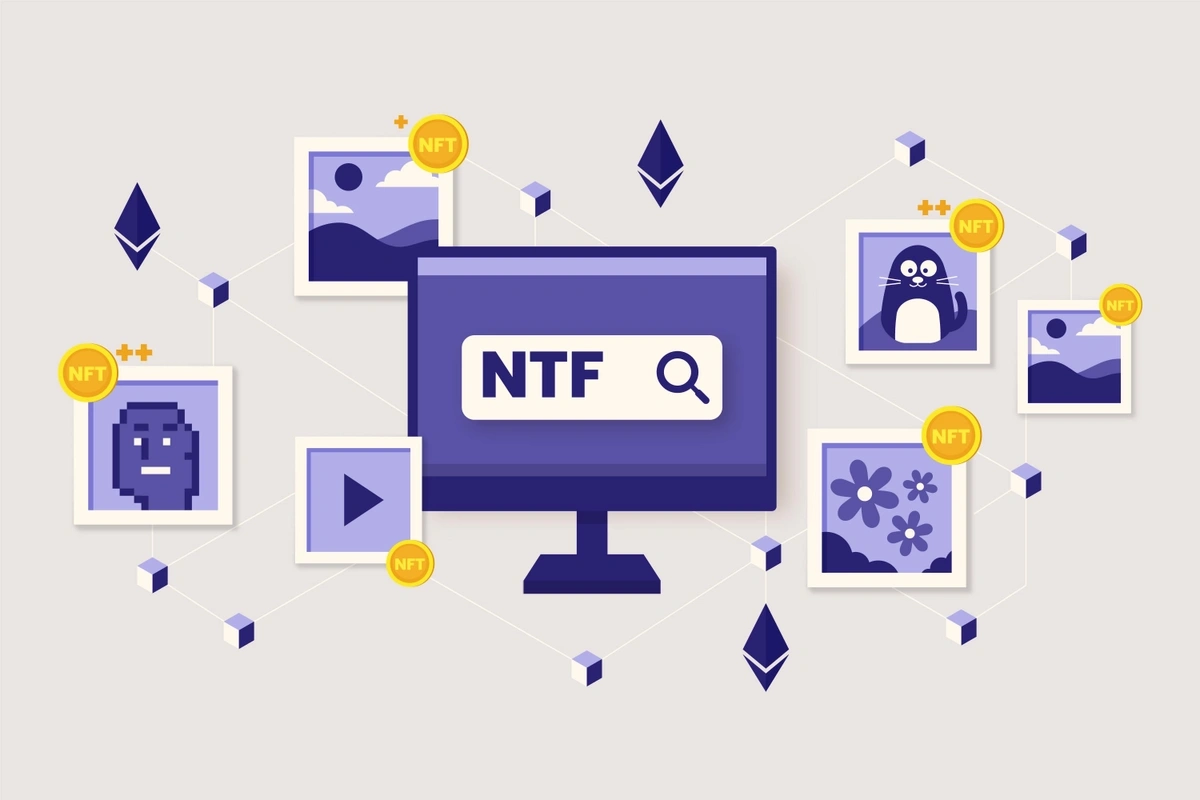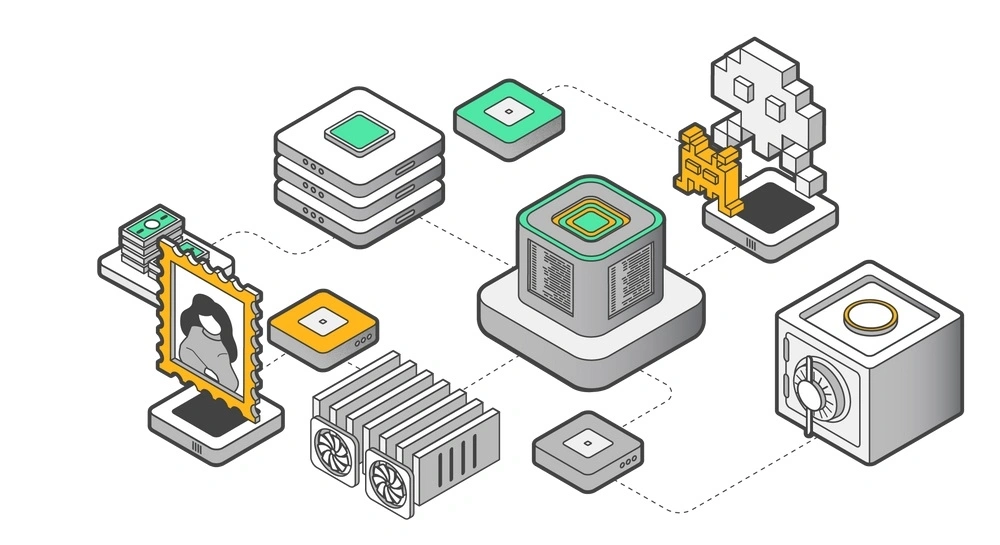Welcome to the digital frontier of NFTs! These unique digital tokens are reshaping how we value, buy, and sell online content. As a generally new use of blockchain technology, the full potential of NFTs have yet to be unlocked, but tech enthusiasts and business-savvy pioneers continue to push the boundaries to discover new use cases. While some find significant success, others don’t quite achieve their goals.
Welcome to the digital frontier of NFTs! These unique digital tokens are reshaping how we value, buy, and sell online content. As a generally new use of blockchain technology, the full potential of NFTs have yet to be unlocked, but tech enthusiasts and business-savvy pioneers continue to push the boundaries to discover new use cases. While some find significant success, others don’t quite achieve their goals.
To help you step forth into this new world with confidence, we put forth tips on how to strategically buy and sell NFTs with increased likelihood of generating a profit.
What Are NFTs and Possible Use Cases
NFTs, or non-fungible tokens, are unique digital assets secured on a blockchain, primarily Ethereum. Unlike other cryptocurrencies like Bitcoin or Ethereum which are interchangeable and identical (fungible), each NFT is distinct and non-replaceable. This uniqueness gives NFTs the capability to represent anything from art, music, and videos to collectibles and important documents within the digital realm. As we become more entrenched in a digital-first world, NFTs offer a way to prove and transfer ownership of these one-of-a-kind digital items. Think of it as a certificate of authenticity for the digital universe.
What Can You Do with NFTs?
- Digital Art Display: Showcase or trade unique digital artwork, from animations to illustrations.
- Music and Video Licensing: Purchase and own exclusive rights to songs, albums, or video clips.
- Collectibles: Trade or collect digital trading cards, action figures, or any rare digital memorabilia.
- Virtual Real Estate: Buy, sell, or develop plots of land in virtual worlds or metaverses.
- Gaming Assets: Use as in-game items, characters, or accessories that can be traded outside the game environment.
- Royalty Earnings: Earn a cut every time the NFT is resold, providing artists with ongoing revenue streams.
- Digital Fashion: Own and showcase virtual clothing or accessories in digital spaces or augmented realities.
- Tokenized Assets: Represent real-world items like cars, real estate, or luxury goods, bridging the physical and digital.
- Event Tickets: Use as a form of verifiable, non-duplicable tickets for concerts, sports, or any live events.
- Intellectual Property: Protect and prove ownership of digital ideas, patents, or concepts.
These are just a few ways NFTs are currently being used. As technology evolves and adoption increases, we’ll see NFTs be used in exciting new ways and with greater frequency.
NFTs: The New and the Future
While the idea of owning something digitally has been around, NFTs are taking it to an entirely new level. They're giving artists a direct line to their audience, bypassing traditional platforms. Musicians, artists, and even real estate professionals are finding innovative ways to use them. With NFTs, the boundaries of digital ownership are expanding, promising a future where the usage of digital assets increases and the lines between physical and digital assets merge.
How to Buy and Sell NFTs for Profit
Steps to Begin Buying NFTs
1. Establish Your Digital Wallet
Just as traditional wallets hold physical currency, a digital wallet, like ZERT, is the designated space for your digital assets. But it's more than just a placeholder; it's a dynamic tool that makes buying and selling NFTs possible. Seek the following when choosing a digital wallet:
Security: In the digital sphere, threats lurk everywhere. A wallet like ZERT prioritizes the protection of your assets, leveraging state-of-the-art encryption to fend off potential cyber threats.
Accessibility: With the right digital wallet, your NFTs are always a few clicks away, allowing for easy monitoring and transactions.
Interoperability: The world of NFTs spans various platforms and blockchains. ZERT ensures seamless interaction across multiple NFT marketplaces, accommodating diverse digital assets.
2. Choose Your NFT Marketplace
An NFT marketplace is a digital platform where creators can mint and list their NFTs for collectors or investors to purhcase. Think of it as an art gallery but for digital creations. There are many marketplaces to choose from and factors to consider before selecting your favored playground.
Factors to Consider
Reputation and Credibility: Platforms like OpenSea, known for their vast collections, or Foundation, revered for high-end art, have earned their reputation over time. Always research the platform's credibility before investing.
Alignment with Interest: Are you into digital art, music, or collectibles? The marketplace should cater to your interests. For instance, NBA Top Shot would be apt for basketball enthusiasts.
User Experience: A user-friendly interface can greatly enhance your NFT journey, so opt for platforms that offer an intuitive buying and selling experience.
3. Navigate the Marketplace
The NFT marketplace operates as a digital convergence point for creators, collectors, and investors. Similar to traditional marketplaces, there are terminologies, mechanisms, and dynamics specific to this domain that one must understand to effectively engage and make informed decisions.
Key Terms to Understand for Buying and Selling NFTs:
Minting: This refers to the act of creating an NFT on the blockchain. Analogous to an artist finalizing a piece of artwork, minting solidifies the digital asset's uniqueness and authenticity.
Gas Fees: These are transaction fees specific to the Ethereum network. In the same vein as transaction costs in traditional markets, gas fees cover the computational work for the digital transfer of assets.
Royalties: This mechanism ensures that original creators receive a percentage of sales when the NFT is resold. It's an innovative way to continually reward creators for their work, akin to residuals in traditional art sales.
Tips for Navigating NFT Marketplaces Effectively
Conduct Market Analysis
Regularly assess which artists or NFT categories are trending and which might be losing popularity. This can guide purchasing decisions.
Engage with the Community
Participating in relevant forums or discussions provides insights that aren't always evident through mere observation.
Stay Updated
Given the rapidly changing nature of the NFT space, continuous learning and staying updated on new developments can provide a competitive edge.
How to Sell NFTs You’ve Created
Choose Your Blockchain
While Ethereum is the most popular, other blockchains like Flow or Binance Smart Chain can also host NFTs. Picking one depends on factors like fees, speed, and eco-friendliness. Before you can sell your NFTs, you need to select a blockchain and create tokenized assets by registering them on the blockchain. This process allows them to officially become part of the decentralized ledger.
Uploading Your Creation
Once you’ve selected a blockchain, it’s time to mint your digital art, making it an official NFT. Ensure it's an original work, adding value and credibility to your creation.
Crafting a Thorough Description
Like any item, a well-detailed description can attract potential buyers. Dive deep into the item's backstory, its significance, and any additional attributes that can lure in an audience.
Strategies for Making a Profit Through Selling NFTs
Navigating Volatile Markets
The nature of the NFT landscape is inherently volatile. Unlike traditional assets, NFT values can fluctuate significantly in short periods. Factors such as technological advancements, regulatory changes, and cultural shifts can impact the NFT market. Being vigilant and staying informed will help you anticipate shifts and navigate the turbulent waters.
While there’s no perfect approach to anticipating market changes, consider the difference between trend-setters and those who merely report them. Similar to investing in real estate in an 'up-and-coming' neighborhood, the goal is to leverage the insights of trusted thought leaders to proactively acquire related NFTs prior to the onslaught of public demand, aiming to buy low and sell high for maximum profits.
Auction vs. Fixed Price
NFTs have a significantly different selling process than cryptocurrencies due to their one-of-a-kind nature; you must find a singular buyer. Choosing between auctioning an NFT or setting a fixed price can drastically affect its sale potential. Auctions can create a sense of urgency and competition, potentially driving up the final sale price.
On the other hand, selling the NFT with a fixed price offers clarity and can attract buyers looking for a straightforward transaction. You also have greater control over Gauge your target audience's preferences and the uniqueness of your NFT to determine the best strategy.
Short-Term Flipping vs. Long-Term Investments
Different investment strategies cater to different financial goals:
Short-term flipping involves buying NFTs with the intention of reselling them quickly for a profit. This strategy requires staying updated with current trends, as the market's sentiment can change rapidly. Short-term flipping can be a significant time investment and can be particularly vulnerable to the day-to-day fluctuations of the market.
Long-term investments, in contrast, bank on the NFT's value appreciating over time. This often involves researching the potential for an NFT to become more desirable or rare in the future.
The Overlooked Costs of Selling NFTs for Profit
Engaging in the NFT market isn't devoid of expenses. Don't get caught off guard by marketplace or listing fees, which can sometimes take a significant chunk out of your profits. Always factor in these costs when considering the sale price, especially with increased frequency of short-term flipping.
Strategically Choosing Which NFTs to Buy
Operate in Familiar Territories
Delve into categories you're passionate about or have expertise in. Whether it's art, music, sports, or another niche, knowledge can offer a competitive advantage. A collector familiar with nuances in their domain is often better poised to make informed decisions and predict future demand.
Deep Dive into the Community
Beyond the NFT itself, understanding the creators, the project's community, and their broader goals can offer insights into the asset's future potential. Engage with forums, follow project roadmaps, and assess the long-term vision. This will provide a clearer picture of the NFT's trajectory
Understand That NFTs Don’t Guarentee Profitability
Lastly, it's paramount to remember that while NFTs offer incredible opportunities, they come with inherent risks. Not every purchase will yield a profit, and the market's speculative nature means that finding interested buyers isn't always guaranteed. Approach with curiosity, diligence, and a willingness to learn.
Other Profitable Ways to Use NFTs
Staking NFTs
In some ecosystems, owners can stake their NFTs to earn rewards. This process involves temporarily locking up the NFT to receive dividends, similar to how staking works with cryptocurrencies. This can provide NFT holders with a passive income stream, making their assets work for them.
Establishing Ownership of Digital Assets to Generate Royalties
NFTs revolutionize digital ownership by introducing royalties. When an NFT is sold or transferred, a percentage of that sale can be automatically directed back to the original creator. This ensures that artists and creators continue to benefit from their work, even after the initial sale.
Digitizing Official Documents
NFTs can be employed to represent tangible documents such as degrees, certificates, or patients’ medical histories. By turning them into NFTs, these documents gain the advantage of blockchain's immutability, ensuring they cannot be tampered with and providing an efficient way to verify authenticity.
Supply Chain and Logistical Management
Counterfeiting and data tampering are major challenges in supply chains. NFTs offer a solution by ensuring authenticity at every stage of the supply chain. From proving the origin of luxury goods to ensuring time-sensitive data remains intact, the blockchain-backed nature of NFTs brings trust and transparency to industries.
Purchasing Digital Real Estate in the Metaverse
The Metaverse—a collective virtual shared space created by converging physical and virtual reality—offers unique opportunities. Virtual land or properties can be bought as NFTs, and as these digital spaces gain traction, they can appreciate value. Some pioneers in this field have even generated substantial returns by trading or developing their digital plots.
Understanding NFTs as a Financial Investment
A Fledgling Investment Avenue
Even on the cusp of 2024, NFTs are relatively new entrants in the investment world. This novelty brings both unparalleled opportunities and inherent risks. As with all emerging markets, there's an allure of being an early adopter, possibly reaping significant rewards. However, this landscape's unproven nature also means the market is volatile and can be influenced by a myriad of factors.
Profit Isn't a Given
One of the fundamental mindsets for NFT investors is recognizing that profit is never assured. The tales of massive earnings often dominate headlines, but many NFTs don't appreciate in value or could even decline. As is the case with any investment, thorough research, due diligence, and an understanding of the asset's potential are pivotal.
Diversification of Digital Assets
While NFTs present a unique investment opportunity, it's essential to recognize the value of diversifying your digital asset portfolio. Rather than heavily leaning into NFTs alone, investors can consider spreading their stakes across various digital assets, be it cryptocurrencies or other digital tokens. This strategy not only helps mitigate risks but also ensures that one's portfolio isn't overly susceptible to the highs and lows of the NFT market.
Using ZERT to Safely Store NFTs
With the rise of NFTs, the importance of a secure digital storage solution cannot be overstated. ZERT offers a safe haven for your digital assets, ensuring they're protected against external threats.
In the evolving world of NFTs, being informed, cautious, and strategic can set the difference between mere participation and meaningful profit. Whether you're buying, creating, or selling, venture with knowledge and passion.
Buying and Selling NFTs for a Profit - Key Takeaways
Navigating the world of NFTs can be both exciting and daunting. These digital tokens have transformed the way we think about value and ownership online, giving creators and investors a fresh platform to showcase and monetize their work. Yet, as with any investment, there's a mix of opportunity and risk. The key? Stay informed. Dive into the communities, understand the tech, and always do your homework before making a purchase or sale. And while the NFT landscape is ever-evolving, one thing remains clear: they're more than just a fleeting trend. They're shaping the future of digital trade.





